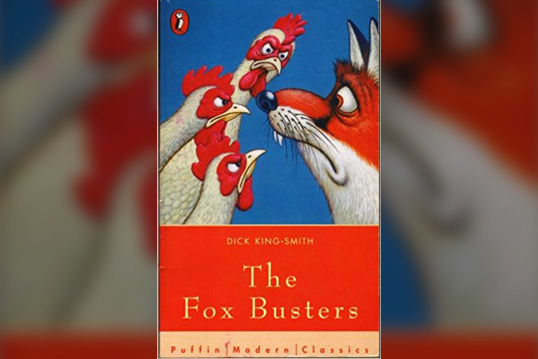Wondering what kind of books are the “right books”? Trisha Williams shares her thoughts on the importance of reading the classics.
Who would the twenty-nine pilgrims from Geoffrey Chaucer’s Canturbury Tales be if we met them today? What would they be wearing? Where would they be going? These questions must be answered by my students as they attempt to modernize the Prologue of the medieval classic. The point of this project is to demonstrate how timeless the rascally bard’s rhyming characterizations can still be today. Another point is to compare and contrast the vastly different worldview of medieval society that saw God as sovereign with a contemporary society that likes to pretend he isn’t. The Wife of Bath becomes a character from Desperate Housewives reality TV, the Knight a retired army General, and the meek Parson somehow always a pastor from small town Iowa. Their destination, instead of pilgrimaging to the bones of martyr Thomas Becket at the famous Canterbury Cathedral, might be Disneyland, Mall of America, Las Vegas, or someplace else seemingly devoid of eternal significance.
Students who enjoy the process so much wonder why can’t they just read and study their own updated version. After all, it is much easier to understand and way more accessible than the original. Right?
This idea of updating classics is not new. The Austen Project is one such recent attempt to reimagine Jane Austen’s six classics into modern best sellers. Val McDermid reworked Austen’s satire Northanger Abbey in 2014. The Times had this to say about her achievement: “McDermid’s reworking of the original novel is intelligent, amusing and well-written… captures beautifully how it feels to be a teenager… Her obvious pleasure in the task is as contagious as Austen’s wit.”
I chuckled out loud at two points in this review. Miss Austen would have no idea what the term “teenager” meant, and equating the author’s pleasure in her task to Austen’s sharp wit is not quite the same thing as saying McDermid’s wit rivals Jane’s.
Now before my expected diatribe against classic rewrites begins—you are all expecting that, correct? After all, I do teach classic literature at a classical school–let me clarify that all great writers are unoriginal. I would even go so far as to say that some of the greatest authors of all time—Homer, Virgil, Dante, Shakespeare—borrowed their ideas and simply rewrote classic stories.
Shakespeare especially was famous for this. His source material for Romeo and Julietstarts with Alfred Brooke’s poem written in 1562. Brooke was inspired by Pierre Boaistuau who was inspired by Matteo Bandello who was inspired by Luigi da Porto who was inspired by Masuccio who was inspired by Xenophon of Ephesus who wrote a story about star-crossed lovers from feuding families in fifth century A.D. Besides Shakespeare, did you recognize anyone? Why not? The simple answer is that Shakespeare told the story better than anyone else. His plot, themes, characterization, and script outshine his source material. His “new” version of the tragic “love” story became classic and is still considered the best version of this ancient tale; the tale of the sex-crazed teenager who convinces a fourteen-year-old girl to disobey her parents, elope with him to have a marriage that ends with their accidental death and suicide.
Only one original storyteller exists. His name is Jesus—the Word of God. From his words he created the world ex nihilo. Out of his great love he didn’t just speak mankind into existence, but shaped Adam with his hands. He breathed into Adam and man became a living soul. Woman came from man’s side as “whoa—man! 2.0” to be his beautiful partner, and together they used God’s gift of language to become storytellers to each other like their Creator whose image they bore. So first there was Love, but if you know the story you know Death comes next due to Adam’s sin.
My college professor, Dr. Johnson, said long ago that you can spot a classic because it is only ever about love or death and the best of all stories will hold love and death in tension.
That’s the gospel story isn’t it? Because of sin, Love himself had to die in order for the zombie curse to be broken, so that we could regain true humanity and love him back and love each other. Part of loving each other is telling the old and new story of our miraculous rescue from the evil Dragon by the Knight in Shining Armor. We are all the damsel in distress longing to be rescued and loved. This is the standard classic plotline by which all stories are measured.
So if we are to be Christian storytellers, should we mess with or rewrite the classics? Yes and no. As already established, none of us are original storytellers nor can we be. But as my students in my medieval literature class casually forget when they become so pleased with their “invention” of twenty-nine misfits going to Las Vegas, their invention had a source, and I do sadly have to inform them all without exception that their work, while having promise, in no way surpasses Chaucer’s. But I am careful to add—“One day I hope it will. Keep writing. Your work might just be the next classic this world needs to read.”
The genius of Homer, Austen, Tolkien, Dostoyevsky, Dante, Augustine, Milton, Shakespeare, Twain, O’Connor etc. was not born into them. They were readers before they were writers. Educator Charlotte Mason said in the nineteenth century:
“Now imagination does not descend, full grown, to take possession of an empty house; like every other power of the mind, it is the merest germ of a power to begin with, and grows by what it gets; and childhood, the age of faith, is the time for its nourishing. The children should have the joy of living in far lands, in other persons, in other times–a delightful double existence; and this joy they will find, for the most part, in their story books.”
Mason is speaking of developing the moral imagination—so essential to living out the Christian faith—by reading, as C. S. Lewis puts it in Narnia, “the right kind of books.” Once children read the right books, they perhaps will go on to write the next classic.






1 Comment
Hi, this is a comment.
To get started with moderating, editing, and deleting comments, please visit the Comments screen in the dashboard.
Commenter avatars come from Gravatar.